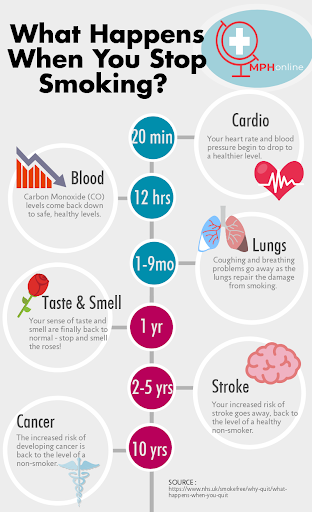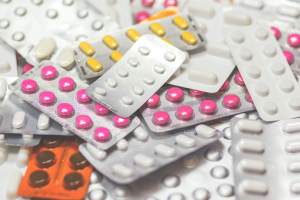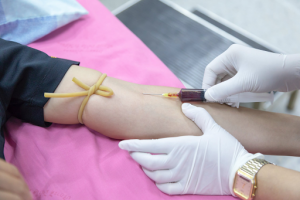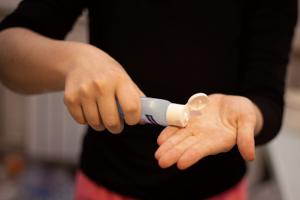
Be well, stay safe, TVD friends,
For those of us living in California, much less the San Francisco peninsula, this has been a harrowing week of smoke and fire, of asthma flairs, evacuation alerts, and for some, the loss of house and home, of so much that we all hold dear. My friend Margaret, pictured above, dodged the lightening-fire bullet, but not everyone else was so fortunate. Please be reminded that it “takes a village”, and reach out to your friends who live in or near fire ravaged areas. Consider opening your checkbook, perhaps supporting a local eatery who are feeding firefighters (looking at you, Alice’s Restaurant), or a number of agencies supporting our first responders and their families. To that end, was there ever a better moment to support our volunteer firefighters up the hill on Kings Mountain by visiting (virtually) the King’s Mountain Art Fair? Not to mention the Elementary School! You can learn more here, or register for this year’s virtual event here.

NOTE: CV🦠News is a labor of love. If you enjoy reading this, please share widely! Was this forwarded to you by a friend? Please subscribe here.

CAN VAPING INCREASE YOUR RISK OF COVID-19?
We know that vaping causes lung injury and that injured lungs are more susceptible to infection, so since the pandemic began, there has been suspicion that vaping increases one’s coronavirus risk. While there were no formal studies, both the FDA and the NIH issued warnings in the early weeks of the pandemic given the concern that “coronavirus could be especially serious to those who smoke or vape.” Stanford University has now done a study that confirms the suspected correlation. The study, which was published August 11, showed that people “ages 13 to 24 who use e-cigarettes are five times more likely to be diagnosed with Covid-19 than their non-vaping peers [and that] those who are dual users—people who smoke both traditional and electronic cigarettes—are seven times more likely to test positive for the virus.” Even one of the co-authors, Bonnie Helpern-Felsher, admitted that she didn’t expect the relationship to be that strong. The study looked at two questions: “Were e-cigarette smokers more likely to get tested for SARS-CoV-2? And were they more likely to test positive? [ and] “the answer was soundly yes” to both parts of the question,” says Halpern-Felsher. The researchers aren’t entirely sure why vapers were more likely to get tested (maybe they confused effects of vaping with COVID-19 symptoms?), but found that “the high rate of positive test results may indicate that vapers are more vulnerable to the virus itself.”
More studies are needed to prove causation, but the authors and other researchers believe the increased risk may come from lung damage itself, suppression of the respiratory immune responses, the fact that vapers touch their hand to their mouth more frequently (and potentially share vape pens), or because the virus is easily aerosolized and thus spread when vapers exhale. So while we don’t yet know if there is a specific biological susceptibility, we still recommend that you DO NOT VAPE during the pandemic (or really any time). Read more here.

ARE THERE ANY OLD MEDICINES BEING CONSIDERED FOR NEW COVID TREATMENT?
There are no FDA-approved drugs to treat COVID-19. All treatments are being actively studied to accumulate evidence and gather safety information. We know people can become gravely ill once infected with coronavirus, and the race to try older medications as a potential treatment for COVID-19 is on, but this race can be dangerous. We only need look back a few months when hydroxychloroquine was announced as an effective early treatment to later being found to have no significant therapeutic effect.
Most hospitals around the world have internal protocols to treat mild, moderate and critically ill patients affected with COVID-19. Many protocols include medications that have FDA approval for other diseases and are now being studied and given to patients with COVID-19 after showing early benefits. Some of the names may sound familiar to you and you may be wondering about them especially if you are currently taking one for another condition.
One of these medications is Pepcid (famotidine) which is used to treat mild heartburn. The studies with famotidine are observational and noted that those patients who received famotidine had improved outcomes. The idea is that perhaps the drug inhibits the virus from replicating.
Another drug in many hospitalized patients is Stromectol (ivermectin). For decades ivermectin has been used as a potent drug for parasitic worm infections. There is only tentative evidence for its benefit but it’s being used around the world. This study in ScienceDirect shows the antiviral properties of ivermectin in laboratory cells in Australia.
Decadron (dexamethasone) is a cheap and widely available steroid. It blunts many types of immune responses and doctors use it for allergies, asthma and many illnesses. In June this study showed that use of dexamethasone reduced COVID-19 deaths. That study included more than 6,000 people, and found that dexamethasone reduced deaths by one-third in patients on ventilators, and by one-fifth in patients on oxygen. It may be less likely to help patients who are at an earlier stage of COVID-19 infections, however.
Next up is Colcrys (colchicine) which is a familiar drug to those who suffer from gout. It is used for arthritic inflammatory diseases and has a relatively good safety profile. There is limited data on its benefits; this Greek study observes the effects of colchicine on hospitalized patients.
The NIH has published its current treatment guidelines. This document includes many of the drugs mentioned above and others that are being tried in many hospitals in the United States.
If you are interested in keeping up with emerging drugs in the fight against COVID-19, The New York Times keeps an ongoing drug and treatment tracker here, that is updated weekly.
There you can find information on drugs that are promising and warrant further research, and others which have been tried but found to have little benefit.
The landscape of COVID-19 is changing with each day and we hope we will have more drugs in our arsenal to fight back.

WHAT IS “CONVALESCENT PLASMA” AND HOW DOES IT TREAT COVID-19?
During the 1918 flu pandemic, doctors found that giving blood from those who had recovered to those currently suffering from the flu could provide useful antibodies to help fight the infection. Since then, convalescent plasma treatment has been used to treat many infections, including severe flu, MERS, SARS, and now with some success SARS-CoV-2.
On August 23rd the FDA granted emergency use authorization (EUA) for convalescent plasma to treat COVID-19 patients. The decision should provide more patients in hospitals around the country with access to receive this treatment. Prior to the EUA issuance, doctors could use the therapy only if their patients were enrolled in a clinical trial studying the treatment, if they applied for special investigational use of the therapy (for very sick patients), or if their hospital was one of the approximately 2,800 participating in the expanded-use program through the National Convalescent Plasma Study.
While over 70,000 patients have received convalescent plasma treatment for COVID-19 infection to date, early data from smaller studies did not show significant improvement in those treated with it. More recent data from the National Convalescent Plasma Study is more promising and suggests early treatment (within 3 days of hospitalization) with plasma that has high concentrations of antibodies is associated with improved survival. One issue with the National Convalescent Plasma Study data, as pointed out by Dr. Francis Collins, Director of the NIH, and Dr. Anthony Fauci, Director of the NIAID, is that all of the participants were transfused with plasma from recovered patients, with no control group. Ongoing research is needed to make a clear assessment as to the safety and efficacy of convalescent plasma treatment.
If you have tested positive for COVID-19 and are interested in donating plasma, please see our article on this topic here for more information on local donation sites, including Stanford Blood Center.
THE FDA HAS RECALLED MORE HAND SANITIZERS
The Food and Drug Administration has recalled even more hand sanitizers with a newly identified, deadly toxin — bringing the list to 150. This new toxin is known as 1-propanol, which can cause depression of the central nervous system and cause death if ingested. “FDA is warning consumers and health care professionals about certain hand sanitizer products, including those manufactured by Harmonic Nature S de RL de MI in Mexico, that are labeled to contain ethanol or isopropyl alcohol but have tested positive for 1-propanol contamination,” the agency said.
“1-propanol, not to be confused with 2-propanol/isopropanol/isopropyl alcohol, is not an acceptable ingredient for hand sanitizer products marketed in the United States and can be toxic and life-threatening when ingested.”
See updated FDA List of “Do Not Use” hand sanitizers at the bottom of this newsletter*.
If you have made it this far, time for a reward, something to lighten your day, and acknowledge the human spirit. Find some escape, or perhaps even inspiration, in this ever growing collection of works and perspectives gathered from around the world. Please contact me directly if you have come across something that has lifted your heart today. Dr. Eric Weiss
Miniature Calendar! For almost a decade, Japanese artist Tanaka Tatsuya has spent every single day crafting miniature scenes made of everyday objects and tiny figurines. However, ever since the COVID-19 pandemic, Tatsuya has opted for incorporating objects that reflect the “new normal.” In his latest works, disposable face masks, toilet paper, and other health and safety essentials are repurposed as props for miniature outdoor adventure scenes.
Again, CV🦠News is a labor of love. If you enjoy reading this, please share widely! Was this forwarded to you by a friend? Please subscribe here.
*****
Yours, in health and resilience,
Eric and the TVD MD team…


*Current list of Hand Sanitizers recalled by FDA:
Agavespa Skincare Hand Sanitizer
All-Clean Hand Sanitizer
Andy’s
Andy’s Best
Assured Aloe
Assured Instant Antiseptic Hand Sanitizer with Aloe and Moisturizers
Assured Instant Antiseptic Hand Sanitizer with Vitamin E and Aloe
Assured Instant Hand Sanitizer (Aloe and Moisturizers)
Assured Instant Hand Sanitizer (Vitamin E and Aloe)
Assured Instant Hand Sanitizer Aloe and Moisturizers
Assured Instant Hand Sanitizer Vitamin E and Aloe
Be Safe Hand Sanitizer
Bersih Antiseptic Alcohol 70% Topical Solution hand sanitizer
Bersih Hand Sanitizer Gel Fragrance Free
bio aaa Advance Hand Sanitizer
Blumen Advanced Hand Sanitizer
Blumen Advanced Hand Sanitizer Aloe
Blumen Advanced Hand Sanitizer Aloe, with 70% alcohol
Blumen Advanced Hand Sanitizer Clear
Blumen Advanced Hand Sanitizer Lavender, with 70% alcohol
Blumen Advanced Instant Hand Sanitizer Clear
Blumen Advanced Instant Hand Sanitizer Clear Ethyl Alcohol 70%
Blumen Advanced Instant Hand Sanitizer Lavender
Blumen Aloe Advanced Hand Sanitizer, with 70 Alcohol
Blumen Antibacterial Fresh Citrus Hand Sanitizer
Blumen Clear Advanced Hand Sanitizer
Blumen Clear Advanced Hand Sanitizer with 70% Alcohol
Blumen Clear Advanced Instant Hand Sanitizer
Blumen Clear Advanced Instant Hand Sanitizer Aloe
Blumen Clear Advanced Instant Hand Sanitizer Lavender
Blumen Clear LEAR Advanced Hand Sanitizer
Blumen Hand Sanitizer Fresh Citrus
Blumen Instant Hand Sanitizer Aloe Vera
Blumen Instant Hand Sanitizer Fragrance Free
Born Basic. Anti-Bac Hand Sanitizer 65% Alcohol
Born Basic. Anti-Bac Hand Sanitizer 70% alcohol
Britz Hand Sanitizer Ethyl Alcohol 70%
Cavalry
CleanCare NoGerm Advanced Hand Sanitizer 75% Alcohol
CleanCare NoGerm Advanced Hand Sanitizer 80% Alcohol
Cleaner Hand Sanitizer Rinse Free 70%
Clear Advanced Hand Sanitizer with 70% Alcohol extra soft with glycerin and aloe
DAESI Hand Sanitizer
Earths Amenities Instant Unscented Hand Sanitizer with Aloe Vera Advanced
ENLIVEN Hand Sanitizing Gel
Esk Biochem Hand Sanitizer
GelBact Hand Sanitizer
Hand Sanitizer Disinfectant Gel 70% Ethyl Alcohol [manufactured in Mexico]
Hand Sanitizer Disinfectant Gel 70% Ethyl Alcohol Rinse Free Hand Rub [manufactured in Mexico]
Hand Sanitizer Gel Alcohol 70% [manufactured in Mexico]
Hand Sanitizer Gel Unscented 70% Alcohol [manufactured in Mexico]
Handzer Hand Sanitizer Rinse Free
Hello Kitty Hand Sanitizer
Herbacil Antiseptic Hand Sanitizer 70% Alcohol
Herbacil Antiseptic Hand Sanitizer 70% Alcohol
Herbacil Antiseptic Hand Sanitizer 70% Alcohol
Jaloma Antiseptic Hand Sanitizer Ethyl Alcohol 62% with Vitamin E
KLAR and DANVER Instant Hand Sanitizer
KLAR and DANVER Instant Hand Sanitizer
Kleanz Antibacterial Hand Sanitizer Advanced
Lavar 70 Gel Hand Sanitizer
Leiper’s Fork Distillery Bulk Disinfectant per 5 gallon and Leiper’s Fork Distillery 16 oz bottle
LumiSkin Advance Hand Sanitizer 16 oz
LumiSkin Advance Hand Sanitizer 4 oz
Lux Eoi Hand Sanitizing Gel
Medicare Alcohol Antiseptic Topical Solution
Modesa Instant Antiseptic Hand Sanitizer with Moisturizers and Aloe Vera
Modesa Instant Antiseptic Hand Sanitizer with Moisturizers and Vitamin E
Modesa Instant Hand Sanitizer Moisturizers and Vitamin E
Mystic Shield Protection Hand Sanitizer
NeoNatural Hand Sanitizer
NEXT Hand Sanitizer
NuuxSan Instant Antibacterial Hand Sanitizer
NuuxSan Instant Hand Sanitizer
Optimus Instant Hand Sanitizer
Optimus Instant Hand Sanitizer
Optimus Lubricants Instant Hand Sanitizer
Parabola Hand Sanitizer
Plus Advanced Hand Sanitizer
Purity Advanced Hand Sanitizer
QualitaMed Hand Sanitizer
Saniderm Advanced Hand Sanitizer
Sayab Antisepctic Hand Sanitizer 100
Scent Theory – Keep It Clean – Pure Clean Anti-bacterial Hand Sanitizer
Scent Theory – Keep It Clean – Pure Clean Anti-bacterial Hand Sanitizer
Selecto Hand Sanitizer
Shine and Clean Hand Sanitizer
The Good Gel Antibacterial Gel Hand Sanitizer
The Honeykeeper Hand Sanitizer
TriCleanz Hand Sanitizer
TriCleanz Tritanium Labs Hand Sanitizer
Urbane Bath and Body Hand Sanitizer
Vidanos Easy Cleaning Rentals Hand Sanitizer
Wave Hand Sanitizer Gel




